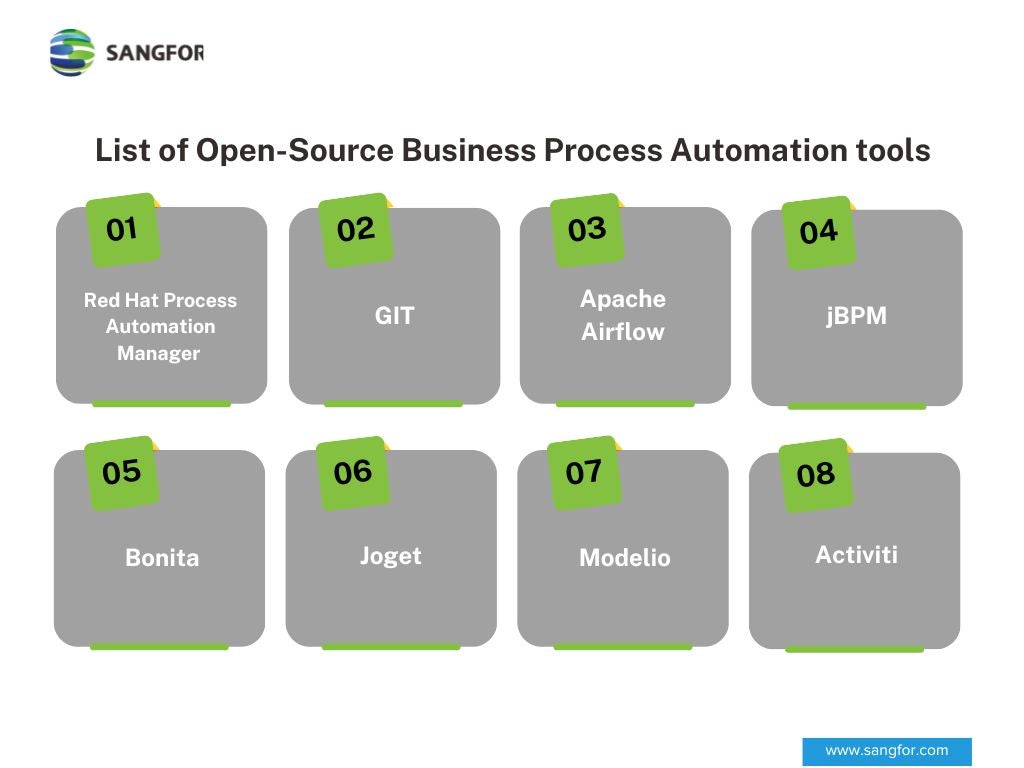Running a business can be a tedious and complex process in the modern age. There are multiple elements within a business that need to work together to keep the company running smoothly. It helps a lot more when all these processes are on the same page. We’re going to look at what business process automation is and how it can help you.
What Is Business Process Automation?
Business process automation is a functional framework that doesn’t need human intervention. Essentially, it’s the use of software that can update and execute tasks automatically. These tasks improve a company's workflow by connecting all the relevant departments and streamlining processes. This framework reduces errors, improves efficiency, and lowers expenses.
Business process automation also has the added benefit of taking on tedious or repetitive tasks so your team can focus on more critical issues. It essentially uses AI and machine learning techniques to automate daily tasks to make it more efficient.

Examples of Business Process Automation
To fully understand the concept of business process automation, you need to consider the ways it could be used within a business. Some of the examples of business process automation include:
- Product License Renewal Reminders - Automated reminders will inform workers about license renewals that need to be processed and prevent you from incurring penalties or fines.
- Onboarding New Employees – Adding a new worker to the roster could be difficult and tiring work. Automation of these onboarding processes means less paperwork, efficient and speedy training, and transparency for the whole team.
- Account Management – A business requires a lot of transactional processes. Automation ensures that every account is updated without delay or error. This includes the process of opening new accounts, issuing payment reminders, and communicating with clients.
- Compliance Management – Your business can only function correctly when it abides by the regulations and laws of your area. Automated processes allow you to ensure that compliance is always adhered to.
- Customer Requests – Response time is critical when running a business. This framework automatically assigns and tracks requests, maintains logs, sends reminders, and ensures that your customers get quick feedback.
- Expense Reporting – Keeping track of the money going out of the business is crucial. Process automation keeps tabs on the expenses, logs relevant information, and ensures the cash flow is secure.
- Invoice Management – Purchases and transactions within the business need to be logged timeously and correctly. Automation ensures this when managing the invoices.
- Loan Origination – This is the automation of the processes involved in approving, declining, or processing loan applications. These involve credit scoring, verification, underwriting, disbursement, and more. Customers appreciate quick – and automatic - responses when it comes to the approval of loans.
- Project Management – This keeps all the relevant staff and shareholders in the loop while automating planning, reminders, documentation, monitoring, and the evaluation process after closure.
- Marketing Automation – Businesses need to keep in contact with potential and existing clients. Automated marketing schedules and manages online marketing across social media and email. This includes email marketing, behavioral targeting, lead prioritization, and personalized advertising.
What are the Benefits of Business Process Automation?
Some of the main benefits of choosing to invest in business process automation include:
- Lower operating expenses by reducing paperwork, working hours, and resource usage.
- Improved transparency across all departments.
- Enhanced productivity and efficiency for all processes.
- Allows workers to take accountability.
- Reduces the risk of error or bias.
- Improves employee relations.
- Boosts engagement with customers and helps to reassure them.
- Creates a better brand image due to efficient responses and advanced workflow.
- Ensures regulatory compliance at all times.
- Maintains a steady workflow.
- Elevates the company’s agility.
- Improves the Return on Investment (ROI)
List of Open-Source Business Process Automation tools
Now that we know how business process automation works and can help your company, we’ve rounded up a few of the best open-source business automation tools on the market:

1. Red Hat Process Automation Manager
The Red Hat Process Automation Manager can be deployed across multiple cloud environments. It allows users to develop automated cloud-based applications and can create modern device-independent user interfaces.
Key Features of Red Hat Process Automation Manager:
- Tools to program for a variety of applications.
- Support for advanced business rules and process engines.
- Complex event processing and case management.
- BPMN models to design workflows and policies.
- Domain Model and Notation (DMN) for domain-specific rule languages.
- Drag-and-Drop Functionality.
- Mac, Windows, & Linux.
2. GIT
The Git platform is a popular free and open-source BPM tool for IT operations. Most corporate users include Netflix, Google, Microsoft, LinkedIn, and Twitter.
Key Features of GIT:
- Flexible distributed version control.
- Branching.
- Data assurance.
- Non-linear and multiple workflow support.
- Role-based code lines
- Frictionless context switching.
- Disposable experimentation and staging areas.
- Seamless integration with other solutions - such as Redmine, Github, and Jira.
- Multiple backups.
3. Apache Airflow
The Apache Airflow platform was created by the community to programmatically author, schedule, and monitor workflows.
Key Features of Apache Airflow:
- Pure Python.
- Intelligent user interface.
- Modular and scalable.
- Dynamic pipeline generation.
- Extensible.
- Parametrization.
- Plug-and-play operators.
- Seamless integration.
- Active community for support.
4. jBPM
jBPM is a process builder that can also simplify and externalize business logic to create reusable business assets. such as. externalize business logic to turn them into reusable business assets.
Key Features of jBPM:
- Customizable.
- Can be used as a standalone service or embedded in a custom service.
- Agnostic framework.
- Management console.
- Business processes.
- Case management.
- Decision management.
- Business rules.
- Business optimization.
- Drag-and-Drop Functionality.
- Active Community Support.
5. Bonita
The Bonita software is simplified and provides users with deep visibility into all tasks, processes, and API calls. It allows you to track and control business processes, data, and applications under one roof using real-time and historical insights.
Key Features of Bonita:
- Process analytics visualization libraries.
- Drag-and-drop design.
- WYSIWYG process builder.
- REST APIs and connectors.
- Data governance.
- On-premises or cloud deployment.
- Platform monitoring.
- Authorization management.
6. Joget
Joget Workflow gives users simple tools to easily build, run, and maintain enterprise-grade web apps for both cloud and mobile. The platform is suitable for both coders and non-coders and uses wizard-style navigation and dialogs to create custom templates.
Key Features of Joget:
- Visual app builder.
- Mobile and web apps.
- Process automation.
- Dynamic plugin architecture.
- Data records management support.
- Tabular data list.
- Standard processes.
- Visually configurable rules and actions.
- Seamless integration with other tools such as JavaScript and JSON.
- Mobile application for both iOS and Android devices.
7. Modelio
The Modelio platform is a modeling environment tool that provides low-code and no-code functionality for designing and automating business processes. It’s used mostly amongst business architects, code developers, and analysts.
Key Features of Modelio:
- Flexible modules.
- Customizable.
- UML modeler.
- Portfolio management.
- Java code generator.
- Active community support.
- Free updates.
- HTML model publishing.
- Diagram editor.
- Web
8. Activiti
Activiti is a platform mainly used for cost-effective highly scalable distributed infrastructures. The product claims to be the leading lightweight, java-centric open-source BPMN engine that supports real-world process automation needs.
Key Features of Activiti:
- Seamless integration.
- Customizable.
- Audit services.
- Notification services.
- Cloud-native building blocks.
- Cloud connectors.
- Query services.
- Processes and decision runtimes.
- Application services.
- Active community for support.
How Sangfor Can Help with Business Process Automation
Sangfor offers leading cloud infrastructure to ensure convenience and flexibility. Achieve superior business process automation with security, control, and professional service. You would be able to run and scale any of the open source or paid Business Process Automation software on your Sangfor infrastructure. Sangfor Cloud Platform and Virtual Desktop Infrastructure are helpful to achieve these goals. Sangfor VDI uses self-developed transmission protocols and GPU technology collaborated with Nvidia to guarantee a seamless desktop experience and boost productivity. With end-to-end security, it also ensures that data is always protected.
For more information on Sangfor’s cybersecurity and cloud computing solutions, visit www.sangfor.com.





